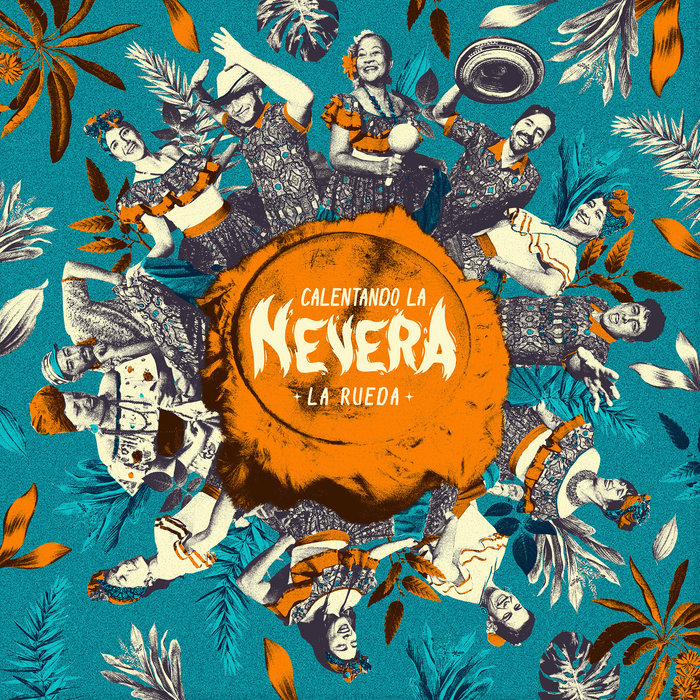
Candelilla brava – La Rueda
this blog is GROOVY – check out great Soul, Funk, Jazz, Hip Hop, Bass, Breaks , Reggae, House n many more TUNES
Rueda de Casino! Just the name conjures images of swirling dancers, vibrant salsa rhythms, and a whole lot of fun. This lively genre isn’t just music; it’s a celebration that pulls you into its joyous world. So grab your dancing shoes and let’s take a funky trip through the history of rueda!
Rueda de Casino has its roots deeply planted in Cuba, particularly in Havana during the 1950s. While salsa was already making waves with its infectious beats and catchy melodies, Rueda de Casino took it to another level by adding a twist – quite literally! It all started as groups of friends gathering around to dance together while signaling each other with calls.
The concept is simple but brilliant: one person acts as the “caller,” directing dancers to switch partners or try out different moves within a circle (or “rueda”). Talk about teamwork! And let’s be honest—who doesn’t love switching partners mid-dance? It’s like speed dating but way more fun and sweaty!
As Rueda spread beyond Cuba’s borders, it found itself embraced by Latino communities across the globe—especially in places like Miami, New York City, and Los Angeles. By the late 20th century, this joyful dance became an integral part of salsa scenes worldwide.
And while we’re on global vibes… here’s where things get funny! Legends say that some musicians tried their hand at calling dances only to find themselves completely out of sync with their own rhythm. One famous arranger famously shouted “Dame más ritmo!” (Give me more rhythm!) just before stepping right on his partner’s foot instead!
The magic behind Rueda is not just about steps; it’s also influenced by various musical styles over time including son cubano (Cuban son), mambo, cha-cha-cha—and even hip-hop grooves have made occasional pop-ins for flavor!
Consider this amusing tidbit: In some informal circles or community festivals where Rueda reigns supreme, musicians might pull out instruments ranging from traditional maracas to congas…and occasionally someone might break out a ukulele for good measure! Nothing says ‘party’ quite like trying to maintain that salsa beat on an instrument usually reserved for beach jams.
Several notable figures helped propel Rueda into mainstream culture—the most famous being “El Maestro” Juanito Pascual who made waves not just through his music but also through cheeky banter during lessons (“If you don’t step forward when I call tonight’s move… you’ll get stuck dancing with Uncle Bob at every family party!” he’d tease).
Then there are stories from legendary salsa kings like Celia Cruz who would jump into her audience’s feet-first shuffle style whenever she performed—a spontaneous blend between performer and crowd that left everyone spinning delightedly outta control!
A little comic relief here: Some musicians even claimed they had secret moves named after them—such as “the Bobby Shuffle,” which supposedly could confuse any dancer over three cocktails deep!
One cannot talk about Rueda without mentioning how everyone—from grandma down to rambunctious toddlers—can join in on mixing up those spins! It creates such communal joy; often younger kids will commandeer their older relatives’ space because they believe they know better moves than anyone older than ten years old.
Another laugh? There were instances when elderly couples showed up at social gatherings thinking they’d seen enough ‘dancing young folk’ practicing lineage dances back-to-back until they knocked someone else off balance mid-performance… Oops indeed!
As we entered the 21st century alongside globalization trends hitting cultural exchanges full force—we saw workshops popping up everywhere teaching beginners how easy (and hilarious) learning rueda can be. Dance studios sprouting around Europe opened doors internationally welcoming folks wanting share smiles whilst mastering this upbeat art form.
It’s worth noting that many clubs hosting these events play mix-tapes featuring non-stop Baila Salsa Rap remixes proving no genre should remain untouched – especially if you’re having fun providing laughs along those floorboards underfoot.
One adorably funny fact comes from parties abroad where people new to rueda learned phrases incorrectly (“Zapateo?” sounded suspiciously similar enough—for those struggling tongues—to become something far less graceful!).
So there you have it—the groovy journey through the history of Ruede de Casino sprinkled with hilarity along every turn (pun intended)! Whether you’re busting moves at home or tearing up floors under flashing lights somewhere special – remember this timeless tradition brings us together one spin at a time.
Let’s keep dancing my friends—and whatever happens next… always dare to bring laughter wherever life takes your feet! Because whether you nail those complex twists perfectly or stumble gloriously—it’s ultimately what makes our heart sing louder than ever before.
Now go forth—you’ve got some serious spinning ahead! 🕺💃🎶

Candelilla brava – La Rueda